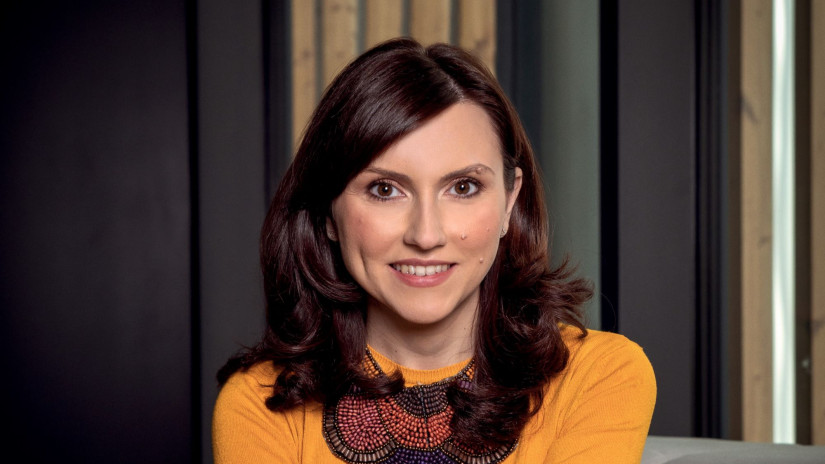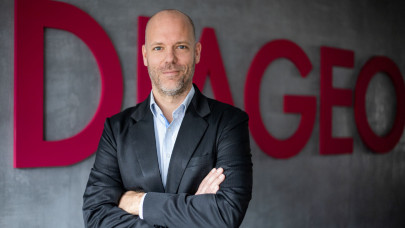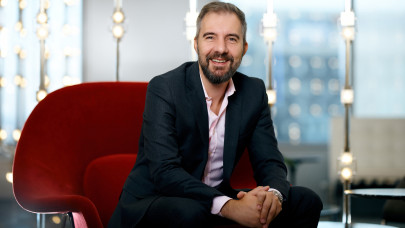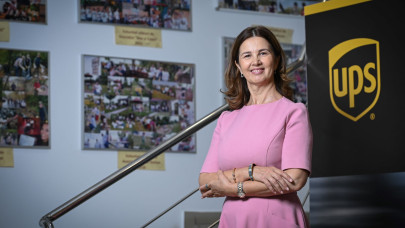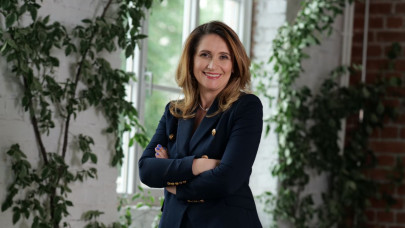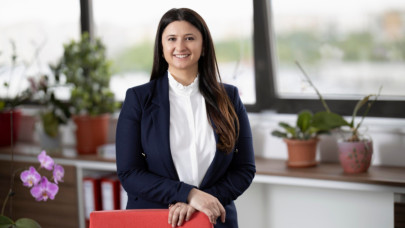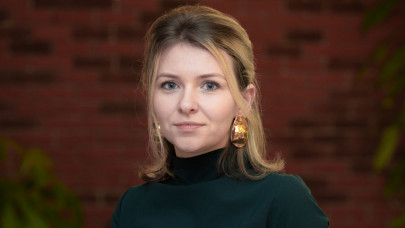What does ESG mean for your company?
For us at Lidl Romania, operating according to a sustainable model and having a sustainable development strategy is a way of doing business in itself. The most important aspect for a company is to look at its own processes and operations and behave responsibly, whether actions in this sphere are seen as sustainability or ESG.
We aim to develop our business in a sustainable way, in line with the 17 Sustainable Development Goals (SDGs) of the United Nations Organization. That is why our mission in sustainability is to act for a better future focusing primarily on reducing the impact of our own operations. Our zero priority is to avoid, mitigate, and remedy the impact on our company. For example, we respond to our customers' needs by investing significantly in the quality of our products - from developing relationships with local suppliers to ensuring traceability, to improving the type of packaging used or reducing the environmental impact of these products along the entire value chain.
We evaluate and follow all these approaches throughout their evolution, from the impact they have, the potential for expansion or development, the results we can have, and the objectives we can set, precisely to ensure that we are constantly improving the activity as a sustainable business. And in this whole process, having a sustainability report every year is an advantage, because we get a real overview of our business and identify very precisely the points and areas where we must act.
The first Lidl sustainability report was launched in 2018, for the financial year 2016. At that time it was only a voluntary exercise for companies. For us, Lidl Romania, however, has become an annual transparency effort, through which we evaluate our results and business impact, present new solutions, and set concrete commitments and objectives to contribute to a better future for future generations.
What measures has the company taken regarding care for the environment, and reduced water and energy consumption? What percentage of the energy consumed by the company is green? What is the target in this regard?
We constantly evaluate the impact that our actions can have on the environment. Whether we are talking about logistics, transport, products, the entire supply chain, or even the preservation of raw materials, every action is based on the principles of sustainability and efficiency.
For example, the expansion of our nationwide store network has a significant impact on the environment. Therefore we constantly strive to identify and implement measures to reduce the impact of buildings on the environment and on the consumption of resources, by equipping them with new solutions and technologies that ensure high standards of energy efficiency, for example: the LED lighting system, with a presence sensor and heat recovery systems integrated in air conditioning installations. At the same time, we are also looking at how we can make water consumption more efficient inside the stores, so, for example, by the end of fiscal year 2022, we managed for 44% of our stores to be connected to a system that allows us to track water consumption in real-time and thus identify possible loss. We continue to make constant efforts to increase the percentage of stores to be connected to this system. Although it is much more complex to build in this way, in the long term, a portfolio of environmentally friendly buildings means, in fact, a positive impact on the business, through efficiency and by conserving resources.
Regarding energy consumption, we propose to use more and more renewable energy sources, respectively energy produced by photovoltaic systems. Thus, by the end of the 2022 financial year, we had installed photovoltaic panels in more than 40 stores. Our commitment is to continue this effort and install as many photovoltaic systems as possible for our stores. All stores in the Lidl network, in which photovoltaic panel systems and electric car charging stations are installed, comply fully with the requirements of the nZEB standard (nearly Zero-Energy Building) regarding the high energy efficiency of the buildings.
What are the company's current sustainability targets?
In order to be able to act sustainably and pursue specific objectives, we have defined 6 fields of action: protecting the climate, respecting biodiversity, conserving resources, acting fairly, promoting health, and engaging in dialogue. We always look at what long-term solutions we have and what needs we can cover, and this way of acting is reflected in the entire value chain, from building stores, transporting, commodities, developing the product portfolio, developing our employees, and up to the programs developed with civil society.
Through all the investments made at the local level, we pursue aspects such as: reducing CO2 emissions and preventing and combating food waste and plastic pollution in all our areas of activity. For example, under the umbrella of REset Plastic, the Schwarz Group's plastic reduction strategy, we have substantially reduced the amount of this material put into circulation through our activity. Through the REset Plastic strategy, we aim for 100% of our own brand packaging to be recyclable in as large a proportion as possible, until 2025, to reduce plastic consumption by 20%, and to use, on average, 25% recycled material in the plastic packaging of our private label products also by 2025. These are goals that we continuously work towards, for which we have established performance indicators, in our sustainability reports.
At the same time, we seek to constantly get involved in the most pressing social problems of the communities in which we operate, in order to contribute to changes for the better and to have a real, long-term impact. We invest in strategic programs developed with civil society, aimed at quality inclusive education, protecting the environment (fighting food waste and plastic pollution), or supporting programs that support the development of emergency services at the national level.
Can you tell us about the partners you're working with to reduce your carbon footprint?
In recent years, we have had discussions with our suppliers on two very important topics: reduction of negative impacts along the supply chain, as well as production, so that our collaborators align their practices to the standards with which we operate.
For example, regarding the reduction of emissions in our transport activities, we work with suppliers who have 3 electric trucks in their own freight transport fleet, including the first 100% electric truck from Romania. Moreover, as of 2020, 100% of our freight trucks are equipped with Euro 5 and Euro 6 engines. Also, with regard to our internal employee fleet, the number of mild hybrid cars represents over 20% of the Lidl Romania transport fleet since 2021. The objective is to increase this percentage yearly. Another example could be the measure we implemented with our suppliers in the 2021 financial year to reduce the plastic quantity in casseroles for over 70 of the fresh meat products from Romanian suppliers. In only one year, we have thus reduced the amount of plastic used by 200 tons, and that of absorbent by 49 tons. Furthermore, the new packaging can be collected with the other plastic waste and recycled in maximum proportion. These are just 2 examples.
What percentage of your suppliers are local?
In 2022, we had in our permanent assortment over 3,500 products developed with local suppliers and over 100,000 tons of Romanian vegetables and fruits available on the shelves. Moreover, last year, we worked with over 450 Romanian suppliers for the permanent assortment and with over 2500 local suppliers of goods and services.
Ever since we entered the Romanian market, a very important direction for us has been the development of relations with local producers and their long-term support in the development of quality products, so we continue to develop partnerships with Romanian suppliers.
How is the retail industry doing in achieving sustainability goals compared to other industries in Romania?
The topic of sustainability has already been a constant on our agenda for several years, being an integral part of our business strategy. Developing relationships with local suppliers, reducing our environmental impact, introducing sustainable packaging, and involvement in local communities are the main aspects we focus on. Regarding the market, we can see that the retail industry, as well as other industries such as real estate, transport, automobile, and food, are looking, today, for ways to improve their environmental policies and to come up with an answer to the needs and concerns of consumers
Besides the 'E' (environmental), social (S) is also an important component of ESG. What's your company's approach to the ‘S'? What social initiatives were the company and its employees involved in in 2022 and what programs do you have planned this year?
Sustainable investments and social responsibility have always been at the top of our priorities. "For a better future" is the motto and vision that guides us in our social responsibility strategy, and continue to be involved in solving social problems of the communities. We support strategic, long-term programs aimed at respecting biodiversity and protecting the environment (reducing the presence of plastic in nature, reducing food waste), correct behavior, and access to education and health services (preventing and reducing school dropout in vulnerable environments, supporting the Romanian emergency medical system and the infrastructure needed for it) or openness to dialogue (partner of the Sustainability Embassy in Romania and Code for Romania strategic partner in the Civic Labs project).
There are many programs that we support and many civil society partners with whom we stand. Only in 2022, we invested over RON 38 million (€7.6 million) in the programs of over 90 NGOs, and the fact that we have better and better results year after year motivates us to continue investing in local communities. We will keep the same strategic directions and the same programs in which we invest for the long term.
At the same time, we make sure that all Lidl employees understand and support the company's sustainability goals. For example, we can tell you about the Community for a Better Future. Basically, we created an internal channel on the We Are Lidl app (the mobile app dedicated to Lidl employees, it's like an internal Facebook), dedicated to passing on key information about sustainability at Lidl and educating employees on the topic. We include here all the information about Lidl's sustainability initiatives, such as partnerships with NGOs, education and environmental programs, and food collection campaigns organized during Easter and Christmas. At the same time, the channel hosts all the #ForABetterFuture initiatives designed for the Lidl team, such as invitations to actions to clean up the plastic from the environment, workshops to educate our team members on the use of resources, as well as video content, in the form of recurring shows, where we talk to colleagues about sustainability and Lidl's actions in this area.
What's your strategy for decreasing food waste? What about food donations?
In terms of preventing food waste within our internal operations, effective product stock planning and product inventory management help us manage this issue properly.
Among other measures in support of combating food waste which we implemented in recent years, we also mention: the 30% price reduction (applied to products such as packed bread, vegetables and fruit packed or sold by the piece, refrigerated items whose expiration date is approaching limit), including the introduction of special shelf sales spaces for these products. Also, on our website, lidl.ro, under the section „Stop waste”, but also on our Facebook and Instagram pages, we bring to our customers' attention how important it is not to waste food and offer them easy solutions to better preserve food and to use leftovers.
Moreover, we have been founding partners of the Romanian Food Bank network, ever since the opening of the first such organization, in Bucharest, in 2016. From then until now, we have continuously supported the development of the Network financially, but also through product donations from our warehouses. Currently, there are Regional Food Banks in Bucharest, but also in 8 other centres: Cluj, Roman, Brașov, Oradea, Timișoara, Constanța, Craiova, and Galați. From the beginning of the partnership until this moment, we have invested over RON 6 million (€1.2 million) in the development of the Romanian Food Bank network and donated over 1,050 tons of food products to it.

